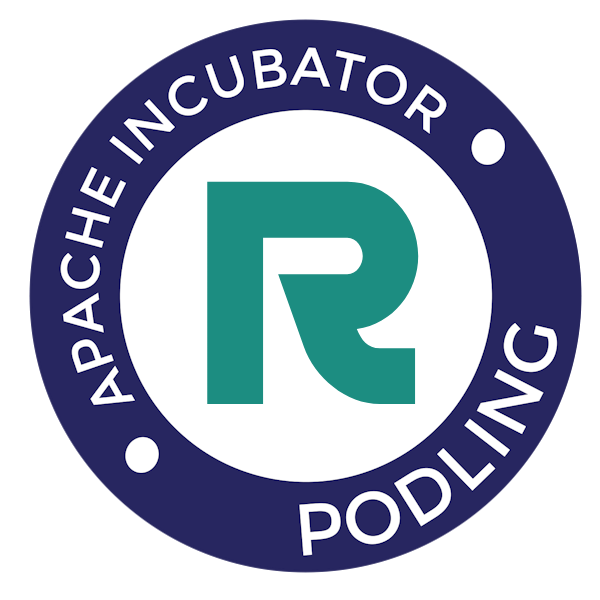Textbooks:
Required:
-
"Database Management Systems" (referred to as DB), 3rd Edition. Raghu Ramakrishnan and J. Gehrke. McGraw Hill, 2003, ISBN 0-07-246563-8.
-
"Transaction Processing on Modern Hardware" (referred to as TP),
Mohammad Sadoghi and Spyros Blanas.
Morgan & Claypool Synthesis Lectures on Data Management. 2019.
[Free online access when accessed within the UC Davis network].
-
"Fault-tolerant Distributed Transactions on Blockchain". (referred to as BC)
Suyash Gupta, Jelle Hellings and Mohammad Sadoghi.
Morgan & Claypool Synthesis Lectures on Data Management. 2021.
[Free online access when accessed within the UC Davis network].
-
Additionally, a list of research papers will be added later as part of the optional reading for the enthusiastic students.
Optional:
Workload:
The key component of the course is the quarter-long group project that is broken
into a set of three main milestones. All milestones may be graded orally (unless
specified otherwise), where the progress is presented by all group members, and
each group member must be ready to answer questions about any aspect of the project;
the latter is of the utmost importance to ensure a comprehensive learning experience
and a fair division of work among all members. Therefore, for each milestone
(especially when presentation option is chosen), a portion of the grade is devoted to
the presented project as a whole on which all members receive the same grade
(50% of the grade), but the remaining portion is individualized (50% of the grade),
So, not all group members may receive the same grade for each milestone. For
each milestone, a bonus of up to 10% can be rewarded.
For each milestone, each group must submit an attribution section in which they specifically
state each person's role and the percentage of their contribution. In a group of 5, it is expected
that a person will complete 15-20% of the overall project. Of course, determining the percentage
is approximate, but the point is that every member contributes fairly.
No contribution means a grade of 0.
The optional presentation for the oral evaluation is limited to at most 15 minutes per team,
the time is strictly enforced. All milestone presentations will be done on Zoom.
The breakdown of 15 minutes is as follows:
-
The milestone overview: the design and solution, what was accomplished and how? (8 minutes)
-
Q/A: Questions about various aspects of the project (4 minutes)
-
Demo: A live demonstration of the code, which includes adding, modifying, and querying the data (3 minutes)
Additionally, there will be a pre-milestone individual assignment for which each student
is expected to think about and explore all aspects of the project. In other words,
each student needs to think about what is required to make an HTAP
database and document their finding in a few pages. Of course, it is highly
recommended to search the web for tutorials and other useful materials. As part this
pre-milestone phase, (1) the group must be formed, namely, when each student submits their
report, the name of their group members and their
team name must be submitted;
and (2) each student must decide which aspect of the project they wish to lead-based
on the research. If you need help to form your group and look for partners, kindly
contact the TAs. Note any group assignment by TAs will be random. Additionally,
An online form will be made available for you to submit your team details.
All students are required to attend every lecture and ask insightful questions.
Additionally, in order to encourage class participation, there will be short and exciting pop
quizzes. We expect to have 3-5 quizzes spread throughout the quarter. The lowest quiz score will
be dropped, but there will be no opportunity for makeup quizzes unless there are exceptional
circumstances or illness (doctor notes are required). If a quiz is missed for valid reasons approved
by the instructor, no zero grade will be assigned but there will be no retake either.
There is zero tolerance policy on the use of AI (e.g., ChatGPT) or plagiarism in general during
quizzes or tests, any offense will result in a grade of zero and will be reported to
Office of Student Support and Judicial Affairs.
Grading: (tentative and subject to change)
The final grade will be based upon the following components (all submissions are due at midnight):
- Individual Pre-milestone Assignment: 5% (Due on January 18, 2025)
- Group Project (three milestones): 60%
- Milestone 1 (20%): Single-threaded, In-memory L-Store (Due on Feb 11); Optional Oral Eval on Feb 14 (8:00am-7:00pm)
- Milestone 2 (20%): Single-threaded, In-memory & Durable L-Store (Due on Feb 25); Optional Oral Eval on Feb 28 (8:00am-7:00pm)
- Milestone 3 (20%): Multi-threaded, In-memory & Durable L-Store (Due on Mar 11); Optinal Oral Eval on Mar 14 (8:00am-7:00pm)
- In-class Popup Quizes: 5% (Expect 3-5 Quizzes)
- In-class Midterm: 10% (In Claass on February 20, 2025)
- Final Exam: 20% (In Class on March 13, 2025)
Communication:
For communication with the instructor, please use email (
[email protected])
and not Canvas. The instructor will not check/reply to Canvas messages.
For group communication (monitored by TAs) and other students, we will rely on
Piazza.
Course Policy:
In this class, we adopt the UC Davis Code of Academic Conduct available
here.
In addition, late submission will result in a 10% penalty for each day
late; at most, an extension of up to two days may be granted. Students are
strongly advised that any act of cheating will result in a score of 0
for the entire milestone (or the course), and offenses will be
reported to the Office of the Dean of Students. You are encouraged to discuss
problems and ideas, but the final solution or code must be your own. In the
event of a major campus emergency, course requirements, deadlines, and grading
percentages are subject to changes that may be necessitated by a revised quarter
calendar. If such unusual circumstances arise, students may determine any such
changes by contacting the instructor.

